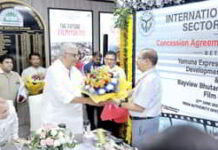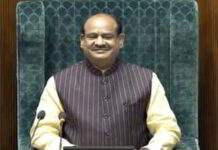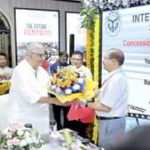Singular focus: On the new Union Ministers and portfolios
Science is now too vast to be administered by one minister
The portfolios of many of the newly sworn-in Ministers of the 18th Lok Sabha signal no significant changes from what they held in the previous regime. The Bharatiya Janata Party continues to retain the ‘major’ portfolios, from Home to Telecommunications, with the rest distributed among its coalition allies. The 18th Lok Sabha also includes five Ministers of State with independent charge. One of them is Jitendra Singh, whose portfolio spans the Departments of Space (DoS) and Atomic Energy (DAE), the Ministries of Earth Sciences (MoES), Science and Technology (MST), and Personnel, Public Grievances and Pensions. Each of these ministries or departments by itself is a handful these days. The DoS is grappling with the entry of private sector players in the national space programme as well as managing the development of the maiden human spaceflight mission and new launch vehicles. The MoES is involved in missions to explore the seabed for mineral resources — an enterprise just beginning to feature in multilateral fora — as well as climate adaptation and mitigation. The MST oversees India’s three foremost research departments at a time when the world is haring to test artificial intelligence, build quantum computers, develop and deploy multi-omics approaches in sectors from agriculture to medicine, and invent advanced energy storage solutions. The DAE has announced plans to rapidly advance nuclear power, which includes starting phase two of its reactors programme and commissioning one facility every year. Just the sheer amount of technical divergence in the offing here, and their evolving interactions with society at large, merits more than a shared Minister of State.
The fields these bodies oversee also suffer many persistent problems. To pick a few: the timelines of fellowship and grant disbursals for young researchers are often farcical; facilities that can support interdisciplinary research are largely localised and inimical to collaboration; cutting-edge research is hamstrung by vacillating regulations; intellectual property rights protection is less than airtight, and translational research is bare and restricted to some sectors. Importantly, the gross domestic expenditure on research and development as a fraction of GDP has been declining since 2008-09. While demands for more money should be preceded by capacity building that can productively absorb these funds, the growth of that capacity has been in fits and starts. Among other things, India sorely needs a separate Minister, ideally of Cabinet rank, for each of its major nodal research bodies to escape their long-standing rut, and have their needs met and problems solved in meaningful fashion during the bumpy rule of a coalition government.
















